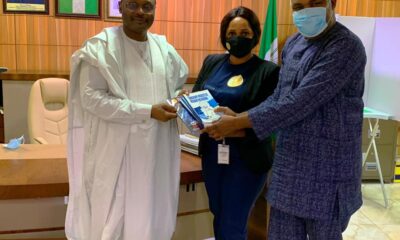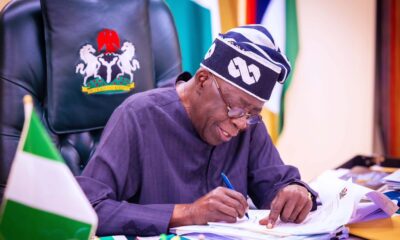Opinion
JUDGMENTS OF ‘FIRE’ AND ‘BRIMSTONE’ – By Emmanuel Onwubiko

Nigeria’s highest court of justice, known as the Supreme Court of Nigeria, has been in the news in recent times for the ugliest of reasons.
The ugliness of the public perception infamy attained few days back by the Nigerian Supreme Court is in such a way that within few hours of the emergence of the two unrelated but similarly controversial judgments, public perception jumped to a frenetic negativity in such a way that public trust, confidence have started waning and the generally accepted rationale for the introduction of the court system which is to deliver judgments in such ways and manners that justice would not only be done but must be seen to have been done has almost vanished at the altar of miscarriage of justice embodied in those two judgments that we are commenting about. I must say from the beginning that the decisions of the Supreme Court are final. In as much as we can’t do anything about the nature of those judgments, we must say that there are deeper traces of fallibility in those pronouncements.
The gist is that the Nigerian Supreme Court delivered two highly contentious and unpopular judgments first on the political differences in Rivers state between the governor Mr Siminalayi Fubara and his estranged political godfather and current minister of the Federal Capital Territory Mr Nyesom Wike.
Nyesom Wike who is believed to be waging the war of attrition against his estranged political godson through his stooges who are 27 in number and were the members of the Rivers State House of Assembly who parted ways with the governor leading to the division of the Rivers state legislature, has been in jubilant mood since that judgment that favoured his stooges emerged.
As briefly stated above, the Supreme Court favoured the FCT minister and virtually stripped the serving governor of Rivers state of many of his influences and political relevance.
Since that judgment was delivered about one week ago, Rivers state has become a hotbed of intensive political infighting just as armed thugs have already shot some supporters of the governor dead and then an amorphous bunch of guns wielding hooded boys, made a video threatening to rain fire and brimstone on Rivers state should the Wike’s supporters whose political relevance has been reinforced by the Supreme Court’s verdict, carry out their threats to impeach the first ever Ijaw born governor.
I will return to narrate extensively some aspects of that dangerous judgment of the Supreme Court of Nigeria that has ignited political uprising in Rivers state.
The second most ridiculous judgment that has just dropped off the shelves of the Nigerian Supreme Court, is that incredible verdict that insists that a Christian farmer who was attacked by armed herders in his Adamawa state based village farm but he fought back and the chief aggressor died from his wounds, should face the public execution only for exercising his right to self defence.
This judgment has stood logic and commonsense on their heads.
As aforementioned, I will give some aspects of that Supreme Court’s ruling on the political crisis in Rivers state that has now ignited the biggest flames of political warfare between the sitting governor and his erstwhile political godfather who is fighting through political surrogates who are the 27 renegade members of the then factionalised Rivers state House of Assembly.
The rebellious group of legislators who openly announced their defection on public television and widely celebrated for their illegality including some statements of felicitations from the National headquarters of the All Progressives Congress in Abuja, have now been licensed by the Supreme Court’s contentious and illogical judgment to take over the Rivers state House of Assembly which they have done and have already started stoking the embers of divisions and issuing threats against the governor and some of his key appointees even as Rivers State is now in a state of war.
There is a climate of fear and uncertainty escalated by the miscarriage of justice that oozed out from that Supreme Court’s ruling, which I will list out some citations in the next few lines.
But before i give the Supreme Court judgment, we need to be reminded that there was already a controversy that the FCT minister who never hid his endorsement of the cases against his successor in different federal High courts in Abuja, Court of Appeal before they were consolidated into one by the Supreme Court, had openly donated expensive FCT lands and has already commenced the building of living quarters for Judges and Justices of Federal High court and the Court of Appeal and on the day the foundation laying of these controversial free houses for judges and justices were conducted by Nyesom Wike who is behind the 27 members of the Rivers state House of Assembly waging war for him against his estranged political godson, the Chief Justice of Nigeria Justice Kekere-Ekun was reportedly present. Wike maintains that there was nothing unethical about the housing estates for judges and justices. Many senior lawyers have criticised the donations to the judiciary by the FCT minister.
There were widespread suspicions that the donations of houses and lands to Justices handling cases involving the loyalists of the financial backer of the litigant who are against the Rivers state governor may influence the outcome of the Supreme Court decision.
That decision has happened, and Rivers state is never the same. Below are lines making up the summary of the contentious 62-page judgement, which was distributed generously last Thursday to the media, including several pages of advertisements in some national dailies that ran on Friday.
In it, the Nigerian Supreme Court made unbelievable claim as if the justices are monks insulated from watching television, that there was no iota or shred of evidence to support the claim of defection made against the 27 members of the House of Assembly from the People’s Democratic Party (PDP) to the All Progressives Congress (APC).
The lead judgment was actually written so provocatively in favour of the All Progressives Congress which the FCT minister works for and who is obviously the sponsor of the rebellious bunch of Rivers state legislators waging war against their sitting governor.
In the judgement signed by Justice Emmanuel Agim, the Apex court said that the Rivers State governor, Siminalayi Fubara, who raised the allegations of defection against the 27 lawmakers on his own volition withdrew the allegations at the Federal High Court in Abuja.
By not supporting the defection claim against the Amaewhule-led leadership, the apex court held that in the eyes of the law, no defection has taken place and consequently the status quo in the House of Assembly must remain.
“The 8th respondent (Fubara) had collapsed the Rivers State House of Assembly. Therefore, no question about any member having lost his seat in that House due to defection can validly arise. There must be a House of Assembly for any constitutional processes therein to take place.
“The daim that the 27 members are no longer members of the House on the basis of an alleged defection is a continuation of his determination to prevent them from participating in the proceedings of the House. It is an engagement in chicanery.
“Sections 102 and 109 of the Constitution can not be invoked in aid of this unconstitutional enterprise. Section 102. of the Constitution that provides that “A House of Assembly may act notwithstanding any vacancy in its membership and the presence of any person not entitled to be present at or to participate in the proceedings of the House shall not invalidate such proceedings”, cannot be relied on to validate the proceedings of a House of Assembly in the absence of over 90% of the members or to justify a vacancy created by the illegal exclusion of a member of the House or to justify the contrived illegal exclusion of 27 members and officials from the House and illegal shutting down of the House by destroying the legislative building and House of Assembly complex and blocking access to the place by legislators and officials of the House.
“A government can not be said to exist without one of the three arms that make up the Government of a State under the 1999 Constitution. In this case, the executive arm of the government has chosen to collapse the legislature to enable him to govern without the legislature as a despot. As it is, there is no government in Rivers State.
“The doctrine of necessity can not be invoked to justify the continued existence of a deliberately contrived illegal or unconstitutional status quo. It can not be invoked to justify and protect the illegal actions of the 8” respondent and his despotic rule of Rivers State without a House of Assembly.
“It applies to genuine situations that were not contemplated in the provisions of the Constitution or any law, which situations require the taking of some legitimate extra constitutional or extra-legal actions to protect public interest.
“The 8″respondent’s fear of impeachment by the House Assembly is no justification for his attacks on the House of Assembly, the Constitution, the Government of Rivers State, and rule of law.
“Political disagreements can not justify these attacks and contempt for the rule of law by the Governor of a State or any person. What the 8” respondent has done is to destroy the government because of his fear of being impeached.
“In the light of the foregoing, I hold that Cross-appeal No SC/CV/1175A/2024 lacks merit and is hereby dismissed.
“The part of the judgment of the Court of Appeal affirming the judgment of the Federal High Court in Suit No. FHC/AB)/CS/984/2024 is hereby affirmed. The said judgment of the Federal High Court in Suit No.. FHC/AB)/CS/984/2024 is hereby restored.
“For avoidance of doubt it is hereby ordered that the Central Bank of Nigeria and the Accountant General of the Federation should forthwith stop releasing and paying to the Government of Rivers State, its organs, departments and Officials any money belonging to Rivers State until an Appropriation Law is made by Rivers State House of Assembly constituted as prescribed y the 1999 Constitution.
“The Rt Honourable Martin Chike Amaewhule and the other 26 members should forthwith resume unhindered sitting as Speaker and members respectively of the Rivers State House of Assembly.
“The Rivers State House of Assembly” Should resume sitting with all elected members forthwith.
Then what seemed like the most absurd judgment to have ever emanated from the court system in Nigeria was the confirmation of the death sentence on the Adamawa born Christian farmer who fought off an attack by Fulani herders and succeeded in taken out the chief aggressor.
The Supreme Court agreed with the lower courts, which blamed the appellant for fighting back to stay alive instead of running away according to the judgment of the first court of instance in Adamawa state.
The Supreme Court of Nigeria, on Friday, March 7th, upheld the death sentence of Sunday Jackson, a farmer in his 30s, for killing a Fulani herdsman in what he claims was an act of self-defense.
The ruling has drawn sharp criticism from human rights advocates, who argue that it reflects a disturbing trend in Nigeria’s justice system, where citizens defending themselves against violent attacks are increasingly facing harsh penalties, while their attackers often evade accountability.
The case dates back to an incident in Adamawa State, where Jackson was attacked on his farm in Codonti Forest by Buba Bawuro, a Fulani herdsman who had trespassed with his cattle. According to Jackson, Bawuro pulled a knife and stabbed him multiple times during the altercation. In a struggle, Jackson managed to seize the knife and fatally stabbed Bawuro in the neck. Jackson was subsequently arrested and charged with murder despite his consistent assertion that he acted in self-defense. In 2021, a Yola court sentenced him to death by hanging, a decision the Supreme Court has now affirmed.
Human rights lawyer Emmanuel Ogebe, part of Jackson’s defence team, expressed deep concern over the implications of the ruling. He highlighted the broader issue of Nigerians being criminalized for defending themselves in a country where violent attacks by Fulani herdsmen have resulted in thousands of deaths. Dr. William Terence Devlin, an American human rights leader supporting Jackson, echoed these sentiments, stating that Jackson was merely protecting himself and his livelihood from an aggressor.
The case has also raised serious questions about the integrity of Nigeria’s legal process. Jackson’s trial was marred by delays and procedural irregularities. After the final arguments were presented on August 27, 2020, the judgment was not delivered until February 10, 2021—167 days later, far exceeding the 90-day limit mandated by Nigeria’s 1999 Constitution for the delivery of judgments. Lawyers argue that this delay likely contributed to a miscarriage of justice, as the trial judge appeared to confuse key facts and substitute personal opinions for evidence.
Furthermore, Jackson’s defense team has pointed out that the trial judge misinterpreted the constitutional right to self-defense, suggesting that Jackson should have fled rather than fought back, despite evidence that he was stabbed and momentarily incapacitated during the attack. This reasoning has been widely criticized as illogical and inconsistent with universal legal principles that uphold the right to stand one’s ground in the face of imminent danger.
Jackson’s supporters argue that the case should never have gone to trial, as it was a clear instance of self-defense. At most, they contend that a charge of manslaughter would have been appropriate. Instead, Jackson has spent over a decade in prison, including six years awaiting trial for a case that involved only five court sittings. His prolonged incarceration and the subsequent death sentence have been described as a gross travesty of justice, so say many commentators.
The National Association of Court Management, a US based group, gave us a broad idea of the functionality of the universal court system.
That organisation summed up the rationale for establishment of courts as follows: “Purposes and responsibilities of courts should never be confused with efficiency or even the constitutional means of the separation of powers, judicial independence, and the inherent powers of the courts. Courts exist to do justice, to guarantee liberty, to enhance social order, to resolve disputes, to maintain the rule of law, to provide for equal protection, and to ensure due process of law. They exist, so the equality of individuals and the government is reality rather than empty rhetoric.
National Association of Court Management also said: “Carrying out the fundamental purposes and responsibilities of a court requires all court leaders, regardless of their specific position, to ensure their respective courts:
Protect fundamental constitutional and legal rights and promote the rule of law.
Provide access to all who seek court intervention.
Support the timely and fair disposition of all cases.
Recognizing that court leaders perform diverse functions in an array of environments, the following are goals that court professionals should aspire to meet:
Ensure the court’s mission and vision statements support the fundamental purposes and responsibilities of courts.
Provide education on the purposes and responsibilities of the court for court staff.
Promote the independence of the judiciary through its budgeting process and independent policy-making functions.”
Now, if we ask ourselves the hard question of whether the aforementioned twin judgments from the Nigerian Supreme Court meet any of these objectives listed above, the answer is certainly a big NO.
Rather, the Supreme Court gave us two judgments of fire and brimstone. It will take a very long time for faith and trust confidence in the Nigerian justice sector to be restored amongst the greatest percentage of the people of Nigeria. To think that someone who fought back an attacker intending on killing him would now be killed for successfully exercising his constitutional right to self-defense.
And to remember that this judgment of the Supreme Court has come at a time of widespread attacks by armed herders all over Nigeria, one is then left to wonder whether these judges reached this strange determination because either of them or their family members have become the victims of the widespread violence by armed herders in Nigeria.
Emmanuel Onwubiko is the founder of the HUMAN RIGHTS WRITERS ASSOCIATION OF NIGERIA and was a National Commissioner of the NATIONAL HUMAN RIGHTS COMMISSION OF NIGERIA.
Opinion
MAHMOOD: A Humane Assessment
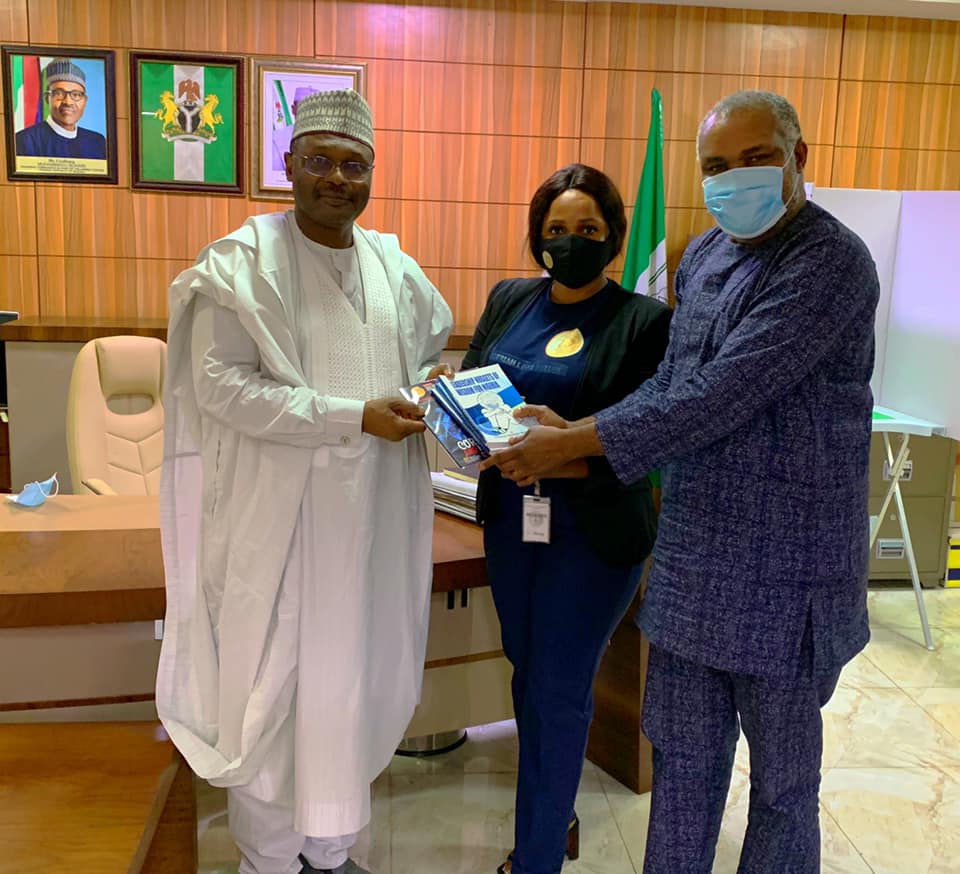
By: Emmanuel Nnadozie Onwubiko
“Be a good human being, a warm-hearted, affectionate person. That is my fundamental belief.”
(-14th Dalai Lama)
“If you judge people, you have no time to love them.”
(-Mother Teresa)
Professor Mahmood Yakubu leaves the Independent National Electoral Commission after ten years at its helm; a decade that will be debated, dissected and, I suspect, ultimately judged kindly by history. President Bola Ahmed Tinubu has formally accepted Professor Yakubu’s departure and, in recognition of his service, conferred on him the national honour of Commander of the Order of the Niger. The handover to the most senior national commissioner, May Agbamuche-Mbu, marks the end of an era and the start of another fraught moment for Nigeria’s electoral architecture.
To assess Yakubu fairly, we must do two things at once: catalogue the hard, demonstrable changes he put in place to modernize Nigeria’s elections, and then judge how those changes held up under the stress test of Nigeria’s deeply adversarial politics. On the first task (the one that will determine whether INEC is stronger on the morning after his exit than it was on the morning of his appointment), Yakubu’s record is substantial, concrete and, in many ways, transformative.
When Mahmood Yakubu arrived at INEC in November 2015, he inherited an electoral agency that had begun to recover public trust after the Attahiru Jega years. Over the next decade, he pursued a program of institutionalising technology, stabilizing processes and expanding access to the register; reforms that were not merely cosmetic but structural. The Bimodal Voter Accreditation System (BVAS) became a fixture at polling units; the machine records accredited voters, stores a picture of the EC8A (the polling unit result sheet) and was designed to reduce the kind of human tampering that has long hollowed out confidence in electoral outcomes. Complementing BVAS was the INEC Result Viewing portal (IReV); a public interface that allowed citizens, parties and observers to compare what was uploaded from polling units with what was being collated at state and national centres. Those two innovations (the biometric accreditation and the result-viewing portal), are not mere gadgets. They rewired the spine of the results chain and moved Nigeria from paper-only opacity toward a model of verifiable transmission.
Technology alone does not make an election free or credible; it makes verification possible. Yakubu’s INEC institutionalised procedures that, for the first time in decades, made it relatively easy for political actors and citizens to detect discrepancies between the result sheets at polling units and what appeared on official portals. This had a practical consequence: in the 2023 general elections, several outcomes that would once have been unthinkable were validated on the ground and in the collation halls. The fact that results ran against the presumed preferences of political heavyweights (from presidential candidates to incumbent governors) is itself evidence that the mechanics of counting and transmission were functioning in ways that allowed voters’ choices to surface. Consider three state-level examples that mattered politically and symbolically.
In Lagos (the commercial hub that was, for decades, a political fief of Bola Tinubu), the Labour Party’s Peter Obi won the plurality of votes, a seismic outcome that spoke to the emergence of new urban coalitions and, importantly, to the ability of INEC’s systems to capture and publish polling unit returns for citizens and the media to scrutinise. That result, confirmed in the data and widely reported by credible international outlets, undercut the narrative that the commission could be bent to produce a foregone conclusion in even the most politically sensitive geographies.
In Osun State, the presidential tally favoured the Peoples Democratic Party’s candidate, an outcome that again cut across expectations and local party machines. And in the Federal Capital Territory, Abuja, the Labour Party’s dominance was decisive and visible on the result portals and official collations. These were not trivial or isolated quirks; they were systemic signs that votes were being counted and reported in ways that allowed the people’s will to be revealed, even when that will clashed with established power.
If one wishes to measure institutional independence by outcomes, look also to the rout of political heavyweights who assumed their influence could buy them seats. At least five outgoing governors who sought to move to the Senate after two terms were defeated by opponents; an outcome that would have been harder to engineer if the electoral market were rigged in favour of incumbency rent. The International Centre for Investigative Reporting recorded the defeats of prominent outgoing governors — Samuel Ortom (Benue), Ifeanyi Ugwuanyi (Enugu), Darius Ishaku (Taraba), Simon Lalong (Plateau) and Ben Ayade (Cross River) — and their losses were widely reported as evidence that the electorate and the electoral machinery combined to produce genuine upsets.
The list of losers includes not only governors but a string of sitting national assembly leaders and committee chairmen who were unseated; a political cleansing of sorts that reflected voters’ impatience and the capacity of the electoral process to enforce it. ICIR’s compilation of National Assembly members who lost their seats in 2023 reads like a catalogue of the vulnerable and the over-confident: minority leaders, long-standing committee chairs and seemingly secure incumbents found themselves out of office when results were tallied and verified. Those outcomes matter because they are measurable, verifiable instances where the electoral process functioned against the grain of personal power.
Bauchi State (Professor Yakubu’s birth state) offers another telling case. In 2023, the presidential vote there swung to the Peoples Democratic Party, handing the opposition a clear victory in the INEC chairman’s own homestead and reinforcing the larger pattern: the mechanics of counting, accreditation and result viewing allowed an opposition triumph in a competitive state where the ruling party expected to be strong. That is a powerful vindication for any electoral manager who sought above all to let the ballot do its work.
Beyond technology and headline-defying results, Yakubu worked to professionalise INEC’s back offices: improving voter registration logistics, expanding the Continuous Voter Registration portal, strengthening training for ad hoc staff and pushing for greater transparency in party primaries. He presided over the creation or consolidation of units within INEC aimed at research, legal affairs and election operations management; slow, bureaucratic work that rarely makes front pages but is essential if an electoral commission is to endure beyond electoral cycles. The Electoral Institute, an INEC initiative, and the commission’s investment in training and data management are part of that quieter, but critical, reform legacy.
All of this, however, must be tempered by honesty. A reformer’s legacy is not simply measured in new machines and portals, but in how the institution responds when things go wrong. The 2023 general election was not flawless. There were well-documented technical glitches with result transmission during the presidential contest; there were delays and disruptions in some states that opened space for suspicion; turnout was depressingly low relative to the number of registered voters, and communication from the commission to the public was sometimes clumsy. Critics (both domestic and international) documented lapses in planning and execution that frustrated expectations that the new technology would magically solve decades of logistical and political problems. Those criticisms are partly fair and partly the byproduct of unrealistic expectations, but they matter all the same.
Nevertheless, when the ledger is balanced, one must concede that Yakubu’s stewardship materially strengthened the capacity of the commission to record, transmit and publish election results. The simple truth is that over his two terms, Nigeria saw the operational roll-out of innovations (BVAS and IReV among them), that converted what had been an opaque counting process into one that could be audited, interrogated and, often, verified by citizens and independent monitors. Where previously suspicion flourished because of lack of transparency, the new systems reduced opportunities for stealthy manipulation; though they did not eliminate them. The point is crucial: independence and procedural integrity were not magically guaranteed by technology, but technology made accountability possible in ways that were previously unimaginable.
The political context in which Yakubu worked should not be ignored. For eight years under President Muhammadu Buhari, public commitments and INEC’s own pronouncements suggested a relative absence of direct presidential interference in the commission’s operating space. Both the executive’s pledges and the facts of contested results that went against incumbent power contributed to an environment in which INEC could, more often than not, execute its mandate without executive fiat. Buhari’s public promise to respect INEC’s independence and the commission’s repeated insistence that it was not under external influence are on the record.
But that is now the past. The present and the future are different. As the transition occurs under President Bola Tinubu, there are deep and widely expressed concerns in the civic and international communities about the stakes of the INEC leadership appointment ahead of the 2027 general elections. International IDEA, CDD-West Africa and other analysts have warned that the appointment to lead INEC in the run-up to another general election is among the highest political stakes a president can face; and that politicising the commission’s leadership risks eroding the very gains Yakubu helped secure. Those warnings are not partisan insinuations; they are sober analyses from electoral experts about institutional risk at moments of transition.
Let me be plain. The verdict that must guide public judgment is this: Professor Mahmood Yakubu performed very well, humanly speaking. He was not infallible; no administrator operating in Nigeria’s febrile politics could be. He made choices, some of which produced predictable controversy. But on balance, he steered INEC toward modern systems, increased transparency, and a greater capacity to resist straightforward manipulation. The evidence is before us in the technical architecture he left behind and the election outcomes that proved, time and again, that votes could surprise the powerful. Those are not idle boastings; they are measurable improvements in how we count and report votes.
If Yakubu deserves praise, he also deserves constructive criticism. Technology is only as good as the contingency plans that sustain it. The commission must, in future, invest far more in redundancy, offline reconciliation protocols and independent audits of the transmission chain. Result-viewing portals must be backed by resilient data centres and clear, rapid public communication when outages occur; IReV’s temporary failures in 2023 became political fodder precisely because the commission had not explained contingencies early and plainly. Training for ad hoc staff must be deeper and earlier; the single largest vulnerability of any electoral operation is the human error that turns a local glitch into national suspicion.
More than operational fixes, however, Nigeria must attend to legal and institutional safeguards that protect INEC’s independence. The next chairperson must not be a political toady; the law must be defended, and civic institutions must be vigilant. We have had evidence these past two cycles that the electorate will punish apparent manipulation; but that is not a substitute for a robust legal firewall that makes manipulation both difficult and costly. International partners, professional domestic observers and Nigeria’s civic intelligentsia should redouble efforts to insist on transparent selection processes and to hold the executive to its obligations to protect the electoral commission’s neutrality.
Finally, Nigerians must not be complacent. A decade of reforms under Professor Yakubu advanced the cause of transparent elections; they are fragile gains. The appointment that follows his exit is the fulcrum upon which those gains will either be cemented into a durable institutional culture or hollowed out by partisanship. If the next occupant of the INEC chair is a partisan surrogate chosen for short-term political expediency, the consequences will be swift: public trust will slump, opposition will be delegitimised, and the bureaucratic scaffolding Yakubu left behind will be repurposed to serve partisan ends. That is not a speculative fear but an historical lesson. It is the duty of every citizen, civil society organisation, and professional body to insist on competence, independence and transparency in the next appointment.
Professor Mahmood Yakubu exits with a record of measurable reform; biometric accreditation widely used, a public result-viewing portal institutionalised, a more professionalised electoral institute and, above all, a string of electoral outcomes that testify to the practical possibility of free and fair contests in Nigeria today. Those achievements do not make Nigeria’s democracy invulnerable, but they have raised the bar for anyone who would try to subvert the will of the people. For that alone, he deserves our thanks, our critique where merited, and our stern vigilance going forward.
Emmanuel Nnadozie Onwubiko is the founder of the HUMAN RIGHTS WRITERS ASSOCIATION OF NIGERIA (HURIWA) and a former NATIONAL COMMISSIONER OF THE NATIONAL HUMAN RIGHTS COMMISSION OF NIGERIA.
Opinion
Marriage: Navigating Rejection and Its Impact
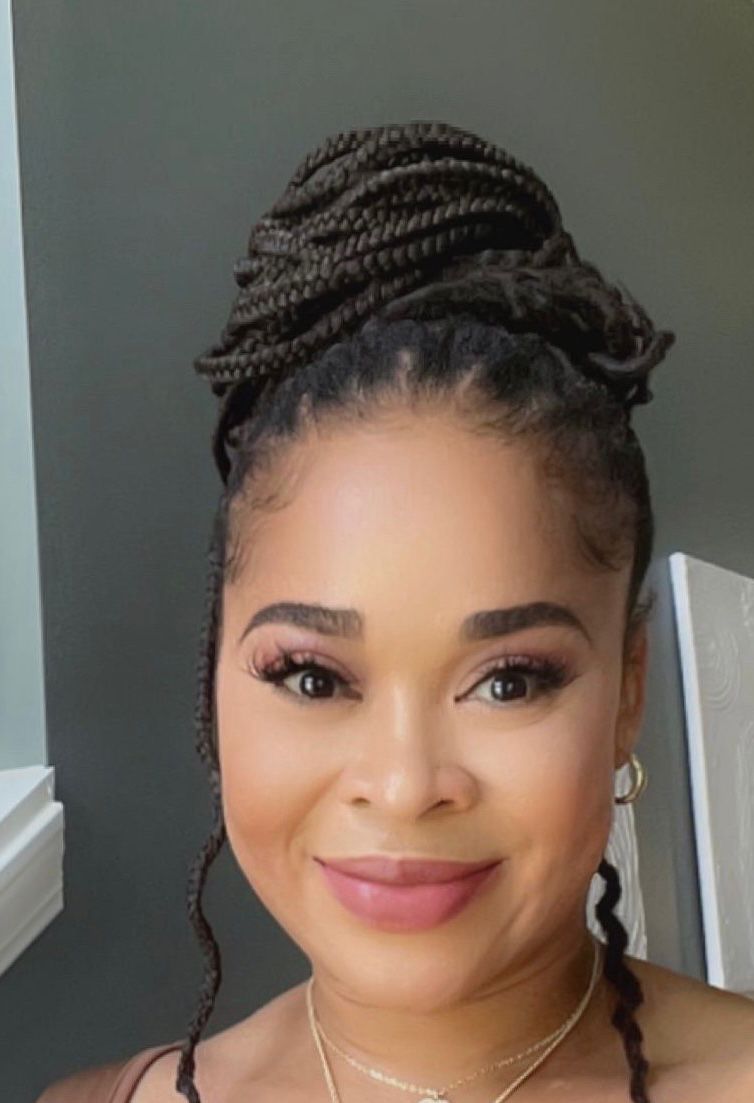
By Stacey Ukaobasi O
Marriage is a union between two individuals, but it often involves integrating into each other’s families. Acceptance from both families can significantly influence the dynamics of the relationship. In many cases, acceptance or rejection from the in-laws can play a pivotal role in determining the fate of the marriage.
Thomas Aquinas is one of the most respected theologians of the Roman Catholic Church, who introduced a profound body of knowledge on the concept and theology of marriage. We will borrow a little from his thoughts before we proceed with our thematic discussion on the dynamics of marriage.
The Permanence of Marriage
Indissoluble by Nature:
Saint Thomas: By the intention of nature, marriage is directed to the rearing of the offspring, not merely for a time, but throughout its whole life. Hence it is of natural law that parents should lay up for their children, and that children should be their parents’ heirs (2 Corinthians 12:14). Therefore, since the offspring is the common good of husband and wife, the dictate of the natural law requires the latter to live together forever inseparably: and so the indissolubility of marriage is of natural law. (Supplement Q. 67 A. 1)
Commentary: Marriage is founded on the primary end of marriage, whence comes a naturally inseparable union. Such permanence brings about the happy result of a stable family.
A Further Aid to the Primary End of Marriage:
Saint Thomas: Now a child cannot be brought up and instructed unless it have certain and definite parents, and this would not be the case unless there were a tie between the man and a definite woman, and it is in this that matrimony consists. (Supplement, Q 41. A1).
However, despite this theological background of marriage, there are several social factors that could necessitate peaceful dissolution, which we will try to encapsulate going forward.
Acceptance and Rejection: The Two Determining Factors
In marriage, acceptance and rejection are two powerful forces that can shape the course of the relationship. Acceptance fosters a sense of belonging, love, and support, while rejection can lead to feelings of isolation, stress, and anxiety. There are two primary types of rejection that couples may face: underground rejection and open rejection.
Underground rejection is subtle and often expressed behind closed doors. Family members may not openly express their disapproval, but their actions and body language can convey their feelings. Open rejection, on the other hand, is direct and explicit. It can manifest as confrontational behavior or outright disapproval from in-laws.
When a spouse feels rejected by their partner’s family, it can create significant stress and tension in the marriage. The couple may feel like they’re walking on eggshells, constantly trying to prove themselves to their in-laws. This can lead to feelings of resentment and frustration, potentially straining the relationship.
The impact of rejection can go as far as the couple feeling reluctant in attending family gatherings because they know there’s no genuine love. This can lead to feelings of isolation and disconnection from the family.
In some cases, having a male child may lead to increased acceptance or tolerance from the in-laws, even if they initially didn’t approve of the wife. However, having female children may exacerbate the situation, leading to more tension and stress in the marriage. This dynamic is often more prevalent among illiterate in-laws, who may hold traditional views and expectations. In some instances, these in-laws may persist in their disapproval, making the woman’s life a living hell regardless of the length of the marriage. The impact of these expectations can vary depending on individual circumstances and the specific family dynamics.
LET’S LEAVE THIS TOPIC FOR ANOTHER DAY!
Now let’s consider the story of a single mother from Enugu Ukwu who relocated to Canada with her two kids. From the outset, her future father-in-law expressed his reservations about her past, asking her how she would feel if her brother wanted to marry a woman with two kids. He further told her that he heard she was a prostitute, which was demeaning and hurtful. Despite this open rejection, she chose to stay and work hard to prove him wrong. Eventually, she married her partner, but the acceptance she received seemed to be conditional, based on the birth of her grandchildren. The absence of her partner’s siblings at their wedding, despite their proximity, further emphasized the lack of acceptance from the broader family unit.
There’s also the story of a man I know very well who traveled abroad and later returned home to marry his longtime sweetheart. Despite his parents’ disapproval, he went ahead with the marriage, and they didn’t attend the wedding. The outcome of their relationship remains uncertain, but it highlights the challenges couples may face when their families don’t approve of their partner.
When a spouse feels rejected or unaccepted by their partner’s family, it can have long-term implications for the marriage. The couple may feel like they’re living on eggshells, constantly trying to navigate the complex web of family dynamics. This can lead to feelings of resentment, frustration, and burnout.
- Acceptance is key. Recognize that your child or sibling has chosen this person for a reason, and they deserve respect and kindness.
- Love and respect go a long way: Treat your new family member with the same love and respect you’d want for yourself or your own family.
- Don’t judge: Avoid making assumptions or judgments about someone based on limited information. Get to know them as an individual.
- Support your loved one. Be there for your loved one and support their decision, even if you don’t fully understand their choice.
By following these principles, you can help create a more positive and loving atmosphere in your family. Acceptance and love are essential for building strong, resilient relationships that benefit both the couple and their children. But also, my dear African women. In challenging situations, prioritizing your well-being and that of your children is crucial. If a relationship becomes overly stressful or toxic, and your partner isn’t supportive, it may be necessary to reassess the situation.
Your mental health and the safety of your children should be top priorities. If the situation doesn’t improve, considering a separation or divorce might be the best decision, regardless of previous marriages, attempts, or even if you have 20 male children for the man. Ultimately, walking away can be a brave and necessary step to protect yourself and your children.
Peace of mind and a stress-free life, especially for the sake of children, is crucial and in conclusion, surrounding yourself with genuine love and acceptance can significantly impact your overall well-being and happiness. It’s essential to recognize when a situation is no longer serving one’s best interests and to take steps to create a more positive and nurturing environment.
Stacey Ukaobasi is the founder of the FORUM FOR CHILD RIGHTS PROMOTION, Nigeria, a Non-Governmental Organisation.
Opinion
Make Politics Healthy, Clean By Emmanuel Nnadozie Onwubiko
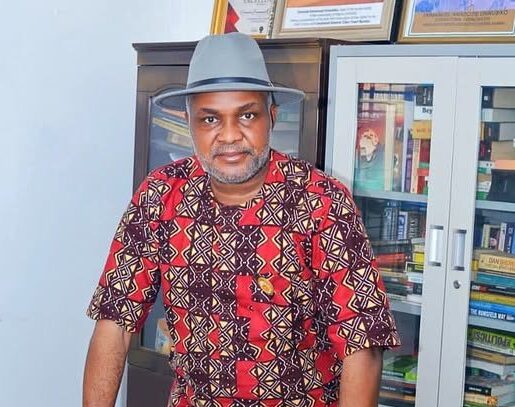
As far as politics and politicking are concerned in Nigeria, any researcher who desires a comprehensive understanding of good governance and democratic principles, should simply look up towards the British politics.
For example, a simple visit to the websites of any of the functional political parties and most especially, the Labour Party, Conservative Party, and even the newly formed Reform Party, would reveal that these parties are preoccupied with explaining their core ideologies and developmental blueprints to better the lives of the British people. They are all after putting up themselves as servants of the people and not masters and power grabbers.
Each of these and many other recognisable and operationalised political parties in Great Britain, are preoccupied with ways to convince the voters that they have what it takes to make living enjoyable and to practicalise democratic process in such a way that everyone in Great Britain is not left behind.
Besides, if you have monitored either the British Broadcasting Cooperation television or the other stylish Broadcasting platform called Sky News, in the last couple of days, you must have noticed that the key political parties in Great Britain have recently held briefing sessions during which the leaders of these parties including the Prime Minister of GB who is of the Labour Party, laboured so hard to win the hearts and minds of the British public. During these public meetings, there were no exchanges of verbal diatribes or malicious accusations being hauled at each other. What dominated their times were the essential elements of their governmental or developmental blueprints.
Whereas the governing Labour Party which is incessantly criticised especially by the Conservative Party that lost election about few months back, for failures to introduce better immigration policy to keep migrants away from invading Britain, busied themselves with telling the British public that their own version of anti-immigration policies are working and that soon the crisis of immigration would be reduced to the nearest minimum.
The Conservative Party on the other hand which is the major opposition party attacked the key economic policies of the Labour Party and were not seen attacking the person of the Prime Minister neither did we see the officials of the Labour Party antagonising or personally attacking the personalities of members of the party opposite. This is called healthy and clean politics characterised by clean and qualitative debates devoid of name-calling and character assassination.
Seeing these healthy conversations from the divergent political leanings in Great Britain, naturally brings us to the inquiry as to whether it is a doable achievement for healthy and clean politics to be practiced in my country Nigeria whereby most people think politics is a dirty game.
It is a fact that politics and politicians in Nigeria are known by the rest of the citizens as persons who lack the discipline and the grace to allow for peaceful, healthy and clean public conversations concerning the economy, security, or the well-being, welfare of the citizens. What Nigerians have seen their politicians do is to stoke up hate-filled rhetorics and to haul attacks on the personalities of the members of their opponents.
Whereas those of the political party controlling power at every level is busy abusing power and using the might of their offices to suppress dissenting voices.
On the side of the opposition politicians, their preoccupation is to plot in an unending fashion on how to topple the government using every available processes or at the next elections. There is never any kind of conversations by these politicians on their political party’s economic development initiatives or blueprints. The fact that state governments controlled by certain parties do everything against the rules of the clean political game to undermine their opponents, should tell us that our own kind of democracy and politics are anything but clean and healthy.
Besides, there is now the new kind of politics of domination that is in practice. The government at the centre controlled by the All Progressives Congress (APC) has started the campaign for the next election to re-elect the incumbent president even when the first four years which he was adjudged by the court to have won in the year 2023 controversial presidential poll, has only gone halfway, but the politicians in the party running the central government have jumped the gun and have kick-started the next campaign which is totally unlawful if we go by the extant provisions of the electoral Act. Sadly, since the federal government controls INEC and the law enforcement agencies, those who go against the law to engage in campaigns for the 2027 elections belonging to the All Progressives Congress are protected by the government.
And so, if you come to Abuja, you would think that the real campaigns for the year 2027 general election have started because in all of the streets of the metropolitan area of the Federal Capital Territory, the political campaign billboards and posters of President Tinubu adorn every available corners. Even the President believes that his government must be composed of only members of his political party as if to say that he is the president of only APC card carrying members. The APC have used federal might and the anti-graft agency of the Economic and Financial Crimes Commission to compel PDP governors to jump ship into the All Progressives Congress of President Tinubu.
The Federal minister who runs Abuja on behalf of the All Progressives Congress, who claims to be a member of the Peoples Democratic Party, has made it almost impossible for any other political party aside APC to use any of the publicly built facilities to hold their meetings even when these facilities have been commercialised. A few weeks back, the FCT ministry announced that the International Conference Centre that government blew over N300 billion dubiously to renovate, is fully booked till the year 2027.
This announcement came against the backdrops of protestations by the newly formed coalition opposition party of African Democratic Congress that they are being denied of the use of public facilities. Also, a five star hotel in Asokoro suspected to be owned by a serving minister cancelled the reservation of the African Democratic Congress only few hours to the commencement of their merger Conference.
Then from Kaduna state came the information that the police have stopped the African Democratic Congress from holding their meeting even when the All Progressives Congress that governs the state holds meetings frequently without any disruption by either thugs or the police. In Lagos State, the APC government allegedly sponsored armed thugs to disrupt the meeting of the opposition ADC just as the same thing happened in Owerri Imo state whereby APC state government allegedly sponsored armed political thugs to infiltrate the Assumpta Catholic Archdiocese Cathedral and chase away the people who gathered for the annual Odenigbo public lecture just because the former governor of Kaduna State who is now in ADC Mallam Nassir El-Rufai was the guest lecturer.
The questions to ask is why should politicians continue to muddy up the political space and causing commotion? Why is it that politicians in government offices do not tolerate their opponents to freely present their programmes? Why are the politicians making the political space violent and intolerably harsh?
The case of Nigeria is distinctive because here, the Nigeria Police Force is not a neutral institution but the hierarchy owes their allegiance to the president that appointed the Inspector-General of Police in which case the police operatives are put at the service of the central government.
The situation we have found ourselves is that whereas politicians have failed to follow the fundamental principles of good governance and democratic process which simply demands accountability on their part, and then the national policing institution that is the primary enforcer of the law, takes side with the political party controlling the government from Abuja, it therefore means that armed thugs can easily be unleashed to attack opposition politicians just so they are not organised enough to contemplate winning against the party in power.
The one danger in this sort of suffocation of the public political space is that if the opposition politicians are forced to go into hiding and to mount campaigns from their hideout, then we are not all safe going by the fact that since obtaining weapons of mass destruction is as easy as passing the junior WAEC, then these opposition politicians driven underground would be left with the only option available: pay freelance armed non-state actors to work as their political Army and since the politicians in government offices have the control of the police and armed political thugs, what then happens during elections won’t be any different from a full-fledged war.
This is where we need to call a spade by its name and to ask Nigerians to wake up and smell the coffee. Nigerians have a duty to drum it up to the government at all levels, to stop the ongoing political war of the political parties before the nation is pushed into a major war during the 2027 elections.
I say this because the people who are now in the opposition were once in government and so have the right connections to the men of the underworld whom they can always call upon to be enlisted as their foot soldiers. In these warfare and tumultuous exchanges of verbal abuses by politicians both within and outside of government, no party has the monopoly of violence because from both ends, there are persons with very deadly mindsets.
A simple experiment would reveal that there are dangerous people in all of these parties in Nigeria both inside and outside of governments: the people in government are openly telling the opposition politicians that over their (government officials) dead bodies, will the opposition coalition take over government in 2027.
Similarly, the actors in the opposition political camp are also telling those of their rivals inside government that they will do everything humanly possible to kick them out of their public offices in the year 2027. So my hypothesis is this: if these people in government are so desperate to win the 2027 poll and they wield powers and influences over the military, the highly biased Nigeria Police Force and most dangerously, they control the so-called Independent National electoral commission, it means that when two elephants fight, the grass suffers.
Therefore, how then do we expect these desperate politicians in public offices to allow for free, peaceful, transparent and fair elections in 2027? Secondly, since the politicians in the opposition coalition are mostly individuals who have been in and out of government and so have access to hire the bad boys with big guns, and they are striving to dethrone the politicians holding offices who are too desperate to allow for a fair contest, what may happen would be tantamount to a civil war unless something happens to deflate these over-bloated political ambitions from both divide.
Let me provide the context that depicts the warlike political atmospherics in today’s Nigeria.
Around January 2025, the Secretary to the Government of the Federation, Senator George Akume, said it was not yet the turn of the north to produce Nigeria’s president in 2027, warning that to do otherwise could undermine the nation’s unity and destroy her.
He, therefore, advised the Northern interest groups to wait until 2031 before running for the presidency, with a caveat that, it was not their time to throw their hat in the ring.
Akume, who spoke as a guest on a television political progamme against the backdrop of deft political scheming and coalition by different groups with the aim to take over power from the ruling APC and succeed President Bola Tinubu in 2027, declared the current president would serve two terms of eight years.
“It is not yet time for the North. This is my appeal to them. Don’t let us destroy our country because of personal ambition. It is my advice and this has been consistent. Do not let us rock the boat.
“Let us allow this power to reside in the south for eight years and then it will come to the North. To do otherwise, honestly is to destroy this country.
“This democracy and people are entitled to their views. Again, in democracy, you always have groups springing up and forming alliance, creating movement and intending to transform them into political parties.
“The political ball, quite frankly, has started to roll and there is one group that is headed by the former governor of Kano State and the Secretary is from Benue State, Emmanuel Jume. He was a member of House of Representative before.
“People have the right to form alliances but my candid advice to my people in the North is that if you should form your alliances, make sure your candidates are from the South. Why? Because that is one thing that will guarantee our territorial integrity and unity,” he said.
Reacting, former Vice President, Alhaji Abubakar Atiku, queried the grounds of equity and fairness in Akume’s admonishment.
In a statement by his Media Adviser, Mazi Paul Ibe, he pointed out that the South has had more years on the presidential seat than the North, counting from 1999.
Atiku said, “Where, then, does true equity and fairness reside? By the year 2027, the South will have enjoyed 17 years of leadership — eight years under Obasanjo, five years under Jonathan, and four years under Tinubu — while the North will have experienced only 11 years, with Yar’Adua serving three and Buhari eight. This results in a disparity of six years between the North and South, casting a shadow over the balance of power.
“In any case, the power to elect and vote out their government lies firmly with the Nigerian people, entrusted to them upon the government’s ability to prove itself worthy of the people’s ballot. But has the Tinubu government demonstrated that it deserves to be re-elected? The answer, alas, is as clear as the heavens themselves — God forbid!”
Tinubu had defeated Atiku in the 2023 presidential election, even as the latter challenged the president’s electoral victory up to the Supreme Court which eventually affirmed Tinubu’s victory.
Also, a serving senator and former governor of Sokoto State Alhaji Aminu Tambuwal gave a television interview in which he professed that he has devoted his time to ensure that Tinubu is defeated in the year 2027 election.
Dateline: February 7, 2019, Reuters reported that a key ally of the then Nigeria’s President Muhammadu Buhari said people from overseas who sought to intervene in the country’s election to be held in little over a week then would go back in body bags.
Nasir El-Rufai, then governor of the northern state of Kaduna, made the comments during a discussion programme on the Nigerian Television Authority when the topic of the international community’s role in elections was raised. It followed an international outcry over the suspension of Nigeria’s top judge.
The discussion about the role of foreign countries in elections was raised on the programme in which reference was made to concerns expressed by the European Union, the United States and Britain over the suspension of Chief Justice Walter Onnoghen over allegedly breaching asset-declaration rules.
“We are waiting for the person who will come and intervene. They will go back in body bags because nobody will come to Nigeria and tell us how to run our country,” said El-Rufai.
“We have got that independence and we are trying to run our country as decently as possible,” he said.
That same El-Rufai is now in the same camp with Atiku in the African Democratic Congress.
So there is the balance of threats and therefore the political atmospherics and climate is that of fear because politicians wanting to retain power by all means including using crooked machinations and their rivals in the opposition political camp, are well equipped with the powerful tools of violence to try to torpedo the other to win the 2027 presidential election.
This is exactly why we are calling for a clean and healthy politics to ensure that Nigeria does not burn because of the 2027 polls. Unfortunately, those who can mediate peace are warmongers. Who bails the cat? The people of Nigeria of course.
Emmanuel Nnadozie Onwubiko, is the founder of the HUMAN RIGHTS WRITERS ASSOCIATION OF NIGERIA and was NATIONAL COMMISSIONER OF THE NATIONAL HUMAN RIGHTS COMMISSION OF NIGERIA.
-

 News10 months ago
News10 months agoNUJ FCT Council Mourns The Loss of Senior Journalist, Isaiah Abraham
-
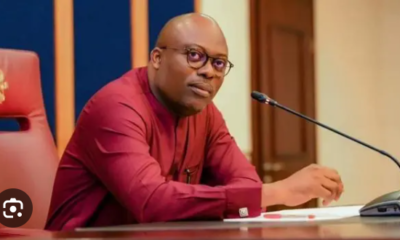
 News10 months ago
News10 months agoHURIWA Declares Governor Fubara’s Emergence as Divine, Urges Support for Rivers State’s Progress
-
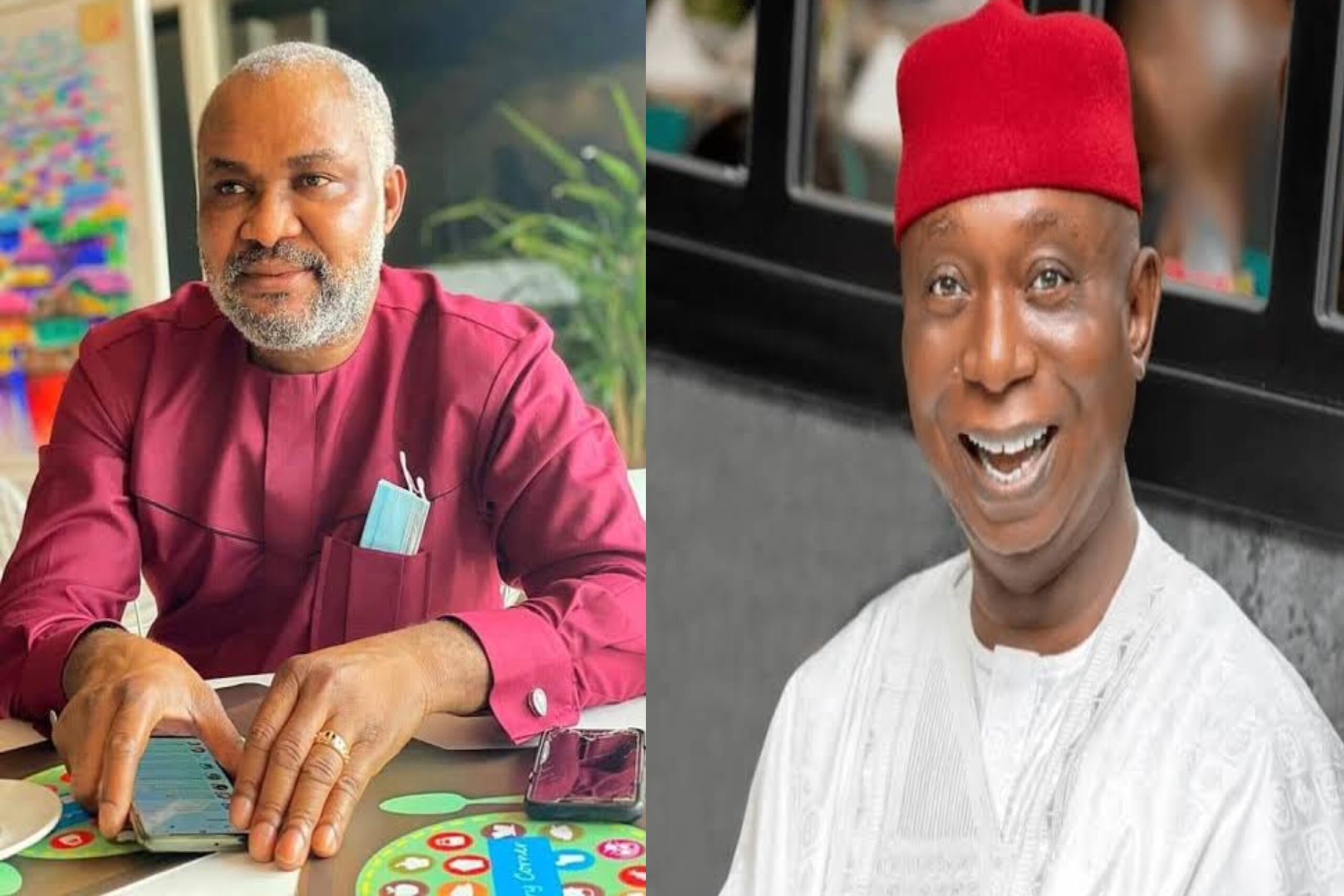
 News10 months ago
News10 months agoAnioma State as panacea to South-East marginalization – By Emmanuel Onwubiko
-

 Opinion8 months ago
Opinion8 months agoNIGERIAN WOMAN IN DIASPORA, CULTURAL SHOCKS – By Stacey Ukaobasi Onwuegbuchulam
-
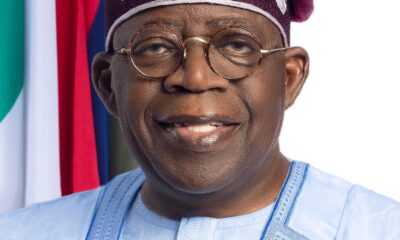
 News11 months ago
News11 months agoHURIWA Blames Serial Stampedes on Weaponized Poverty, Warns of Nigeria’s Rapid Decline
-
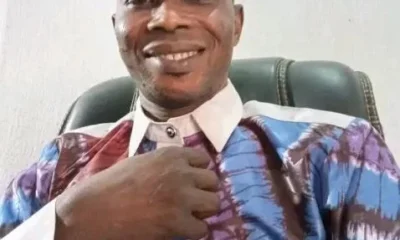
 News10 months ago
News10 months agoJealous Husband Stabs Nigerian Bishop To Death Over Suspicion Of Sleeping With Estranged Wife
-
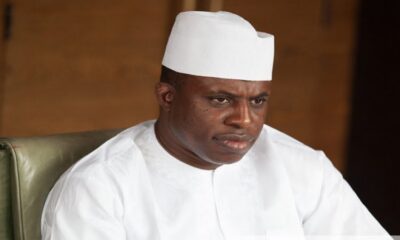
 News10 months ago
News10 months agoTinubu sympathizes with ex-speaker Bankole on the death of his mother
-
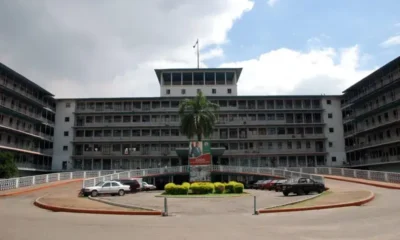
 Health8 months ago
Health8 months agoA complete list of 154 healthcare facilities across Nigeria that provide free emergency obstetric care and VVF (Vesico-Vaginal Fistula) surgeries.


